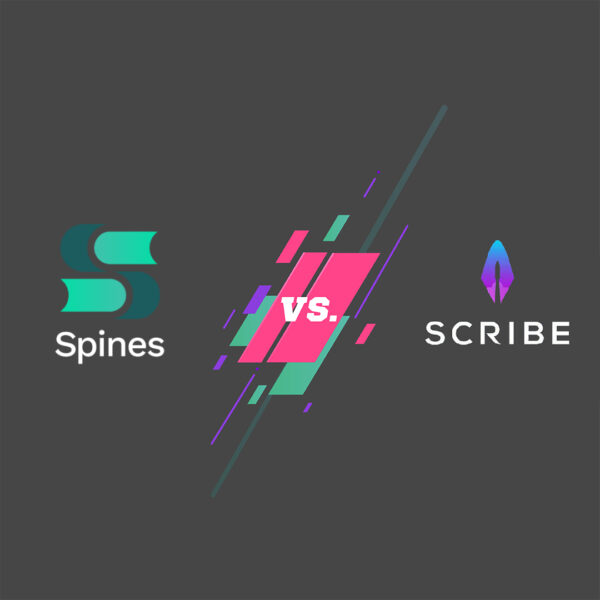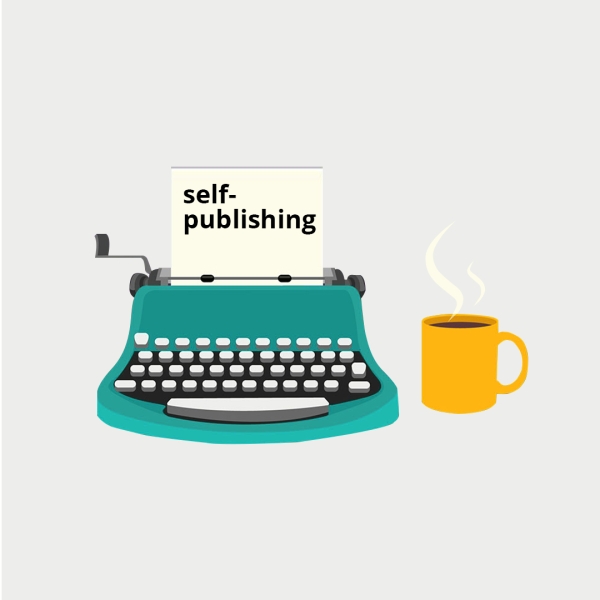The digital revolution has transformed the landscape of book writing, offering authors unprecedented opportunities to share their work with the world. The online book writing domain has burgeoned, fueled by technological advancements and changing reader habits, leading to an exponential increase in electronic and self-published works. This shift has democratized the publishing industry, enabling writers to bypass traditional publishers and gatekeepers and directly reach their audience through platforms like Amazon Kindle Direct Publishing, Kobo Writing Life, Spines, and more.
Traditional publishing, characterized by its selective nature and often lengthy process, involves authors submitting their manuscripts to publishing houses. These entities take on the financial risk of publication, covering editing, design, marketing, and distribution costs. In return, authors receive advances and royalties, albeit relinquishing considerable control over their work. Conversely, self-publishing empowers authors with full control over their writing journey, from cover design to pricing strategy. While this route demands a significant time and financial investment from the author, it also offers higher royalty rates and real-time sales data, presenting a more direct connection to the reader base.
Profitability in online book writing is influenced by various factors, including the chosen publishing route, marketing effectiveness, book quality, and the author’s ability to engage with their audience. The decision between traditional and self-publishing is pivotal, impacting not only the initial investment and creative control but also the potential earnings and career trajectory of an author. Understanding these dynamics is crucial for any writer aspiring to turn their passion into a profitable venture, making an informed approach essential in navigating the complex yet rewarding world of book publishing.
Understanding Online Book Writing Profitability
The advent of digital platforms and the proliferation of e-readers have significantly altered the profit landscape for online book writing. This expanding sector offers a diverse array of opportunities for authors to monetize their craft, yet understanding the intricacies of profit potential is essential for those looking to make money writing books to carve out a successful niche in the digital domain.
Potential Profits in Online Book Writing
The potential profits from online book writing vary widely, influenced by factors such as genre, marketing prowess, platform choice, and the author’s engagement with their audience. Self-published authors, leveraging platforms like Amazon Kindle Direct Publishing (KDP), can earn up to 70% in royalties on the list price of their ebooks, a stark contrast to the traditional model where royalties seldom exceed 15% of the book’s retail price. This direct-to-consumer model not only enhances profit margins but also provides authors with greater flexibility in pricing and promotions, key levers in maximizing earnings.
For many authors, the long tail of ebook sales represents a significant income stream. Unlike print books, which might face constraints in shelf space and visibility, ebooks remain perpetually available, allowing authors to continue earning from their backlist titles. The ability to easily update content and metadata can also rejuvenate interest in older works, further sustaining an author’s income over time.
Key Statistics on Online Book Writing Profit
While exact earnings can be elusive due to the wide variability in author success, surveys and reports shed some light on the financial outcomes of online book writing. According to data from Author Earnings, most self-published authors on platforms like Amazon are earning significant incomes, with the top echelon making six to seven figures annually. However, it’s crucial to note that such success is not ubiquitous; a larger proportion of authors earn modestly, with median incomes often falling below $10,000 per year.
The disparity in earnings underscores the importance of strategic planning and marketing in augmenting one’s profit potential. Success stories often involve authors who have built a strong brand, published multiple titles to captivate and retain readers, and effectively utilized promotional tools and algorithms inherent to online platforms.
Your Publishing Journey Awaits – Start NowImportance of Author Websites in Marketing and Sales
In the digital age, an author’s website serves as the cornerstone of their online presence, offering a direct channel to connect with readers, disseminate information about upcoming works, and build a loyal fan base. A well-designed website can enhance an author’s credibility, provide a platform for selling books and merchandise, and offer exclusive content to engage readers further.
Moreover, an author’s website is a pivotal tool in the arsenal of digital marketing strategies. It can host a blog, feature reader reviews, and integrate social media feeds, thereby increasing visibility and driving traffic. Email newsletters originating from an author’s website allow for personalized engagement with readers, offering updates, exclusive content, and direct links to purchase books, thereby bypassing the noise of crowded online marketplaces.
In the realm of online book sales, the utilization of author websites for direct sales can also prove lucrative. By selling signed copies, and bundles, or offering exclusive editions, authors can command higher prices and retain a larger portion of the profits, all while fostering a closer relationship with their readership.
In conclusion, the profit landscape in online book writing is both vast and varied, with opportunities for significant earnings tempered by the realities of a crowded and competitive market. Success in this arena is multifaceted, hinging not only on the quality of writing but also on an author’s adeptness at marketing, reader engagement, and leveraging the digital tools at their disposal. An author’s website emerges as a critical asset in this ecosystem, providing a platform for branding, sales, and direct communication with readers, which are all integral to building a profitable online writing career.
The Journey of Self-Published Authors
Embarking on the journey of self-publishing transforms an author from a mere creator of valuable content to the mastermind behind an entire publishing operation. This path, while fraught with challenges, offers unparalleled rewards in terms of creative control, direct reader engagement, and potential earnings. Here, we delve into the intricacies of the self-publishing process, the platforms that facilitate this journey, the hurdles and triumphs along the way, the financial dynamics involved, and real-life success stories that illuminate the path for aspiring authors.
The Self-Publishing Process: From Manuscript to Ebook
The journey begins with a completed manuscript, which the author must then shepherd through editing, formatting, cover design, and finally, publication in ebook format. Unlike traditional publishing, where these tasks are handled by the publisher, the self-published author must either acquire these skills or outsource them. Professional editing is crucial for ensuring quality while engaging cover design and professional formatting are essential for making the book appealing and accessible to readers.
Once the book is polished and ready, the author must choose an ebook distribution platform, such as Amazon Kindle Direct Publishing (KDP) or Kobo Writing Life, and upload their work. This involves setting up an account, entering book details (title, description, keywords), uploading the ebook files, the manuscript and cover files, and deciding on distribution channels and pricing.
Platform Dynamics: KDP, Kobo Writing Life, and Beyond
Amazon Kindle Direct Publishing is perhaps the most popular choice for self-published authors due to Amazon’s vast market reach and the user-friendly nature of the platform. KDP offers a straightforward publication process, an extensive distribution network, and various promotional tools, including Kindle Unlimited and Kindle Countdown Deals.
Kobo Writing Life, on the other hand, provides access to a global audience through the Kobo ebook store and its network of international partners. It appeals to authors looking for a more global reach and those who prefer not to be exclusive to Amazon’s ecosystem.
Both platforms allow for relatively quick publication times, giving authors the ability to respond swiftly to market trends and reader feedback, a significant advantage over traditional publishing timelines.
Challenges and Rewards of Self-Publishing
The challenges of self-publishing are manifold, including the initial learning curve, the need for upfront investment in editing and design, and the daunting task of marketing and promotion in a saturated market. The absence of a traditional publisher’s marketing muscle means authors must be savvy in leveraging social media, building an author platform, and engaging directly with readers.
However, the rewards can be substantial. Authors enjoy complete creative freedom over their work, from the content to the cover design and pricing. The direct connection with readers can be immensely satisfying, offering immediate feedback and the chance to build a loyal fanbase. Furthermore, the higher royalty rates afforded by self-publishing platforms mean that successful authors can potentially earn much more money than their traditionally published counterparts.
Financial Aspects: Costs, Pricing, and Revenue
Self-publishing incurs several upfront costs, including professional editing, cover design, and potentially, marketing and advertising expenses. These can range from a few hundred to several thousand dollars, depending on the level of professionalism sought and the marketing strategies employed.
Pricing strategies are critical in self-publishing, with authors needing to balance competitiveness with profitability. Ebooks are often priced lower than their print counterparts, with many successful self-published authors using price promotions or even free book offerings as strategies to attract readers and boost sales of subsequent titles.
Revenue sharing on platforms like KDP favors the author, with royalties of up to 70% on ebook sales, far surpassing the traditional publishing model. This high royalty rate, combined with direct sales through an author’s website or other channels, can significantly enhance earnings, particularly for authors who build a substantial backlist of titles.
Case Studies of Success
The self-publishing world is replete with success stories that serve as both inspiration and blueprints for aspiring authors. Authors like Hugh Howey and Amanda Hocking have achieved remarkable success through self-publishing, leveraging the power of digital platforms to reach vast audiences and secure substantial earnings. These successful authors underscore the importance of quality content, strategic marketing, and the cultivation of an engaged and loyal reader base.
Howey’s “Wool” series, initially self-published, catapulted him to fame and fortune, leading to traditional publishing deals and film rights discussions. Hocking’s success with her paranormal romance and fantasy novels illustrates the potential for self-published authors to make a significant impact, even in highly competitive genres.
In conclusion, the journey of self-published authors is one of autonomy, perseverance, and potential reward. By navigating the challenges of editing, design, platform selection, and marketing, and by making informed decisions about pricing and promotion when publishing their own books, self-published authors can achieve substantial success. The case studies of those who have thrived in this space serve as compelling evidence of the viability of self-publishing as a path to both artistic fulfillment and financial reward.
Self-Publishing With Spines
Spines stands at the forefront of 21st-century publishing, formerly known as BooxAI, they are an AI-powered publishing platform. In the rapidly evolving landscape of self-publishing, Spines emerges as a prominent platform for its exceptional affordability. Spines stands out as a beacon for authors seeking a fast, affordable, and comprehensive publishing solution, making it an increasingly popular choice for those looking to self-publish, especially in a landscape where speed and cost-efficiency are paramount.
Redefining the publishing process, Spines leverages artificial intelligence to streamline production, significantly reducing costs associated with traditional publishing routes. This AI-driven efficiency enables Spines to offer comprehensive publishing plans at prices well below industry standards, making it an unparalleled option for cost-conscious writers.
Affordability is at the cornerstone of Spines. The platform’s comprehensive plans are designed to be significantly more budget-friendly than traditional publishing avenues. This cost efficiency is largely due to the AI-driven processes that reduce production costs, making Spines an ideal option for poets and authors who seek professional publishing services without the hefty price tag.
Spines is revolutionizing the self-publishing landscape by offering a rapid transformation from manuscript to published book in under 30 days, a feat made possible by its AI-driven, streamlined publishing process. This acceleration aligns with the self-publishing goal of quickly bringing works to readers, ensuring timely relevance and sustained momentum for authors. Additionally, Spines enhances the publishing experience with dedicated support from a personal production manager, guiding authors confidently through every step, from editing to design.
The platform’s versatility shines through its AI-generated options for various formats, including Print-on-Demand, eBooks, and Audiobooks, catering to diverse reader preferences and expanding the work’s reach. Moreover, Spines’ commitment to making authors’ works globally accessible is evident in its extensive distribution network. With the platform, authors can see their work distributed across over 100 channels worldwide, including major retailers like Amazon and Barnes & Noble, significantly boosting their international presence and potential for recognition.
For authors seeking the best option to publish their book, Spines is ready for you. Authors can sign up for free to start exploring what this innovative platform offers.
Your Publishing Journey Awaits – Start NowThe Traditional Publishing Route
The traditional publishing route remains a coveted path for many writers, symbolizing a certain validation of their work by the literary establishment. This journey, from manuscript submission to holding a published book, is intricate, and governed by established practices and the expertise of industry professionals. Understanding the nuances of this process, the key players involved, and the financial implications can provide aspiring authors with a clear perspective on the potential rewards and challenges inherent in traditional publishing.
The Traditional Publishing Process
The traditional publishing process begins with the completion of a manuscript. Unlike self-publishing, where the author can directly upload their work to a platform, traditional publishing typically requires securing a literary agent first. Agents act as gatekeepers to the publishing world, using their industry knowledge and contacts to pitch manuscripts to suitable publishers.
Once an agent is convinced of a manuscript’s potential, they submit it to editors at publishing houses. This step can be a lengthy process, often involving multiple rounds of submissions and rejections before finding the right fit. When a publishing house decides to acquire a book, they offer the author a book deal, which includes an advance against royalties and a contract outlining terms and conditions.
Role of Key Players
Literary Agents: These professionals are instrumental in navigating the traditional publishing landscape. They provide critical feedback to improve manuscripts, identify appropriate editors and publishing houses, negotiate contracts, and advocate for the author’s interests. Their compensation is typically a percentage of the author’s earnings from the book deal, usually around 15%.
Editing Services: Within a traditional publishing house, once a book is acquired, it undergoes rigorous editing. This includes developmental editing to refine the structure and content, copyediting to correct grammar and syntax, and proofreading to catch any remaining errors. These services are provided at the publisher publishing company’s expense, ensuring that the entire book meets industry standards before publication.
Traditional Publishing Houses: These institutions are the pillars of the traditional publishing route. They manage the production, distribution, marketing, and sales of books. Their expertise in publishing books, cover design, marketing strategy, and retail distribution can significantly influence a book’s success in the market.
Financial Dynamics
Advances: A distinctive feature of traditional publishing is the advance against royalties, an upfront payment given to the author upon signing the contract. Advances can range widely, from a few thousand dollars for debut authors to six or seven figures for established bestsellers. The advance is essentially a bet by the publisher on the book’s success, and it must be “earned out” through book sales before the author receives additional royalties.
Royalties: Royalties are a percentage of the book’s sale price, paid to the author after the advance has been earned out. These rates vary but are typically between 7% and 15% for print books and up to 25% for ebooks. Royalties are paid periodically, often semi-annually, and are contingent upon the book’s ongoing sales performance.
Rights: Traditional publishing contracts also involve the negotiation of rights, including international, film, and merchandising rights. Authors might cede more control over these aspects to the publisher, but in return, they gain the publisher’s expertise in exploiting these rights to the fullest.
Comparative Analysis of Earnings
The financial outcomes for traditionally published authors vs. self-published authors are markedly different. Traditionally published authors benefit from the prestige, support, and distribution networks of established publishing houses, which can lead to higher initial visibility and sales. However, the trade-off includes lower royalty rates and less control over pricing and marketing strategies.
Self-published authors, while shouldering more upfront costs and responsibilities, retain greater control and a higher percentage of royalties, which can result in higher earnings per book sold, particularly if they can effectively market their work and build a strong reader base.
The debate between the potential earnings in traditional publishing companies vs. self-publishing is nuanced. Success stories exist on both sides, with some authors even leveraging success in one domain to enter the other. Ultimately, the decision hinges on the author’s personal goals, resources, and preferences regarding control, risk, and the type of partnership they seek in the publishing process.
In conclusion, the traditional publishing route offers a structured pathway to publication, supported by the expertise of agents and publishers. While it provides certain financial and professional advantages, it also demands patience, resilience, and a willingness to navigate the complexities of the literary market. Understanding these dynamics is crucial for any author considering this venerable yet challenging path to publication.
Marketing and Sales: The Backbone of Profitability
In the competitive landscape of book publishing, marketing and sales strategies are not just supplementary; they are central to an author’s success and profitability. Whether navigating the self-publishing domain or partnering with a traditional publisher, authors must engage with their audience, employ diverse channels for book promotion, and understand the dynamics of book sales to maximize their earnings and readership.
The Importance of an Effective Marketing Strategy
For both self-published and traditionally published authors, a robust marketing strategy is essential to cut through the noise of a crowded market and reach potential readers. A well-crafted marketing plan outlines clear objectives, identifies the target audience, leverages various promotional tools, and sets a timeline for execution. Effective marketing not only boosts visibility upon a book’s launch but also maintains interest over time, helping to sustain sales and attract new readers.
The Role of Digital Platforms in Book Promotion
Social Media Accounts: Social media platforms like Twitter, Instagram, and Facebook are invaluable for authors looking to build a connection with their audience. Through regular posts, engaging content, and direct interaction with followers, authors can cultivate a community of readers, create buzz around book launches, and share updates about their writing journey.
Author Websites: An author’s website acts as the central hub for their online presence, offering a space to showcase their portfolio, share their biography, and post updates and blog entries. Importantly, it can also facilitate direct book sales, providing a higher profit margin than third-party retailers and allowing for the collection of customer data for future marketing efforts.
Email Marketing: Building an email list through an author’s website or social media channels enables direct communication with readers. Email newsletters can include exclusive content, sneak peeks of upcoming books, and notifications about promotions or events, keeping readers engaged and encouraging repeat purchases.
Your Publishing Journey Awaits – Start NowGenerating Book Sales Across Multiple Channels
Diversifying sales channels is key to maximizing a book’s reach and profitability. While ebooks on platforms like Amazon and Kobo are crucial, expanding into print books through print-on-demand services can tap into the market of readers who prefer physical copies. Audiobooks are another growing segment, appealing to audiences who enjoy books on the go.
Utilizing different platforms for different ebook formats can also broaden an author’s visibility. For example, Amazon might be the go-to for Kindle ebooks, but platforms like IngramSpark or Lulu offer extensive distribution networks for print copies. Simultaneously, exclusive deals or content on an author’s own website can attract dedicated fans and provide more favorable revenue splits.
Engaging with Book Reviewers and Exclusive Content
Book Reviewers: Engaging with book reviewers, bloggers, and influencers can amplify a book’s visibility. Positive reviews on platforms like Goodreads, Amazon, and personal blogs can sway potential readers looking for their next read. Advanced review copies (ARCs) sent to reviewers ahead of a book’s release can generate early buzz and reviews, crucial for a successful launch.
Exclusive Bonus Material: Offering exclusive content can entice readers and add value to a purchase. This could include bonus chapters, novellas set in the same universe, behind-the-scenes content, or author commentary. Such material can be used as an incentive for readers to purchase directly from the author’s website, sign up for an email list, or pre-order upcoming titles.
In conclusion, marketing and sales are the linchpins of an author’s profitability, demanding a strategic, multifaceted approach that spans various platforms and formats. By engaging directly with readers through social media and email, leveraging the power of reviews, and utilizing exclusive content to add value, authors can significantly enhance their visibility, reader engagement, and ultimately, their success in the competitive realm of the book publishing industry.
Scaling Your Writing Career for Increased Profitability
Scaling a writing career to achieve increased profitability is akin to nurturing a growing business. It requires strategic expansion, diversification of income streams, and consistent enhancement of product quality. For authors, this translates to expanding their reader base, diversifying their writing portfolio, and engaging in additional activities that not only bolster their reputation but also open new revenue avenues.
Expanding Reader Base and Book Sales
The foundation of scaling an author’s career is broadening the reach to more readers and subsequently increasing book sales. This can be achieved through strategic marketing efforts, such as targeted advertising campaigns, cross-promotions with other authors, and active engagement on social media platforms. Authors can also participate in book fairs, conventions, and literary festivals, which provide opportunities to connect with readers, network with other professionals, and gain visibility in the literary community.
The Power of a Diverse Writing Portfolio
One of the most effective strategies for an author looking to scale their career is to write multiple books or series. Each new release not only has the potential to generate its own sales but also revitalizes interest in an author’s backlist titles. Series, in particular, can be highly effective in retaining reader interest, as fans eager to follow their beloved characters or narratives are likely to purchase subsequent titles.
Diversifying across genres or venturing into both fiction and non-fiction writing can attract a broader audience. Non-fiction can appeal to readers interested in specific topics or self-improvement, while fiction can captivate those seeking entertainment or emotional connection. By catering to varied tastes, an author can significantly widen their reader base.
Supplementary Income Streams
Beyond book sales, authors can explore additional income streams that leverage their expertise and platform. Offering coaching services to aspiring writers can be both rewarding and profitable, providing personalized guidance on writing techniques, publishing strategies, or marketing.
Writing workshops and online courses present another lucrative opportunity. By sharing their knowledge and experiences, authors can help others navigate the complexities of writing and publishing, all while generating additional revenue.
Speaking engagements at conferences, schools, or literary events not only enhance an author’s profile but also offer financial benefits. These engagements can be particularly lucrative if the author has established themselves as an expert in a specific genre or aspect of the writing process, and publishing.
Your Publishing Journey Awaits – Start NowEnhancing Book Appeal and Targeting the Right Audience
The presentation of a book cover plays a crucial role in attracting readers. A compelling book cover acts as a visual sales pitch, conveying the essence of the story or content at a glance and enticing potential readers to learn more. Investing in professional book cover design is therefore essential for making a book stand out in a crowded marketplace.
Professional editing ensures that a book meets high-quality standards, enhancing readability, coherence, and overall reader satisfaction. Positive reader experiences not only lead to good reviews and word-of-mouth recommendations but also increase the likelihood of readers exploring an author’s other works.
Understanding and targeting the right audience is critical in effectively marketing a book. Authors should conduct market research to identify their core audience’s preferences, behaviors, and where they congregate, whether online or in physical locations. Tailored marketing efforts that resonate with the intended target audience can significantly boost book sales and reader loyalty.
In conclusion, scaling a writing career involves a multifaceted approach that includes expanding one’s reader base, diversifying writing projects, engaging in additional income-generating activities, and continuously improving product quality. By adopting these strategies, authors can not only increase their profitability but also establish a sustainable and fulfilling writing career.
Embracing the Authorial Journey: Towards a Profitable Writing Career
The exploration of online book writing’s profitability landscape reveals a world brimming with opportunities, challenges, and rewards. The journey from manuscript to published work, whether through the self-publishing route or traditional publishing avenues, offers a myriad of possibilities for authors to turn their passion for storytelling into a viable career. This journey, however, is not without its demands, requiring a deep commitment, strategic planning, and an unwavering belief in one’s work.
The potential for profitability in online book writing is significant, underscored by the success stories of self-published authors who have harnessed the power of digital platforms to reach global audiences and traditionally published authors who have leveraged the expertise and distribution networks of established publishing houses. Yet, the path to such success is paved with dedication to the craft, an understanding of the market, and an agile approach to marketing and sales strategies.
A successful publishing career demands more than just talent in writing; it requires authors to become entrepreneurs of their own brand. Engaging with readers through social media, building an effective online presence with an author website, and employing targeted marketing strategies are crucial in building a readership and driving book sales. The journey involves continuous learning, from mastering the intricacies of book promotion to understanding the financial aspects of publishing.
For aspiring authors contemplating this path, the message is one of encouragement and realism. The opportunities within the realm of book writing are vast and growing, yet they come with the need for persistence, resilience, and strategic thinking. Embracing the multifaceted role of an author in today’s digital age means navigating the publishing landscape with a clear vision and a well-crafted plan.
Embarking on your writing journey with a strategic approach to making money online by writing books can lead to a rewarding career, offering both financial benefits and the profound satisfaction of sharing your stories with the world. Remember, every bestselling author once faced the same blank page that you do. With determination, creativity, and strategic action, the next chapter of your writing journey could lead to unimaginable success.
FAQ: Navigating the World of Book Writing and Publishing
Q: Can I make a living from writing books?
A: Yes, it is possible to make a living from writing books, but it requires dedication, strategic marketing, and often, writing multiple books to build a readership. Success varies widely among authors, with some achieving significant incomes, while others may find it more challenging.
Q: Should I self-publish or seek traditional publishing?
A: The choice between self-publishing and traditional publishing depends on your personal goals, resources, and preferences. Self-publishing offers more control and higher royalties per book but requires you to handle all aspects of publishing and marketing. Traditional publishing provides professional support for editing, design, and marketing, but is more competitive and offers lower royalties per book sold.
Q: How important is marketing for a successful book launch?
A: Marketing is crucial for a successful book launch. It helps build anticipation, reach potential readers, and drive initial sales. Effective marketing strategies include social media promotion, email marketing, engaging with book bloggers and reviewers, and leveraging author platforms.
Q: Do I need a literary agent?
A: If you’re pursuing traditional publishing, a literary agent can be invaluable. They guide you through the publishing process, negotiate contracts, and advocate for your best interests. For self-publishing, a literary agent is not necessary.
Q: How much does it cost to self-publish a book?
A: The cost of self-publishing can vary widely depending on the quality of services you seek, such as professional editing, cover design, and marketing. It can range from a few hundred to several thousand dollars. Many expenses are optional or can be minimized with a do-it-yourself approach.
Q: How do I price my book?
A: Pricing your book involves considering your costs, your genre’s typical price range, and your target audience’s willingness to pay. Ebooks are often priced lower than print books. Many authors use promotional pricing or even temporarily free offerings to attract readers.
Q: How can I increase my book sales?
A: Increasing book sales involves writing quality content, effectively marketing your own book, engaging with your audience, and possibly writing more books to build a fan base. Networking with other authors, participating in promotional events, and exploring various sales channels, including direct sales from your own website, can also help.
Q: What are the common pitfalls in book publishing?
A: Common pitfalls include rushing the publication process without proper editing or design, neglecting the importance of a marketing plan, setting unrealistic expectations, and not engaging with the reader community. It’s important to approach publishing with a professional and patient mindset.
Q: Can I publish in both ebook and print formats?
A: Yes, many authors choose to publish in both ebook and print formats to reach a wider audience. Print-on-demand services make it easier to offer print copies without the need for a large upfront investment in inventory.
Q: How long does it take to publish a book?
A: The timeline for publishing a book can vary greatly. Self-publishing can be relatively quick, often taking just a few months from manuscript completion to publication. Traditional publishing typically takes longer, sometimes over a year, due to the involved processes of submission, acquisition, and production.
Your Publishing Journey Awaits – Start Now






